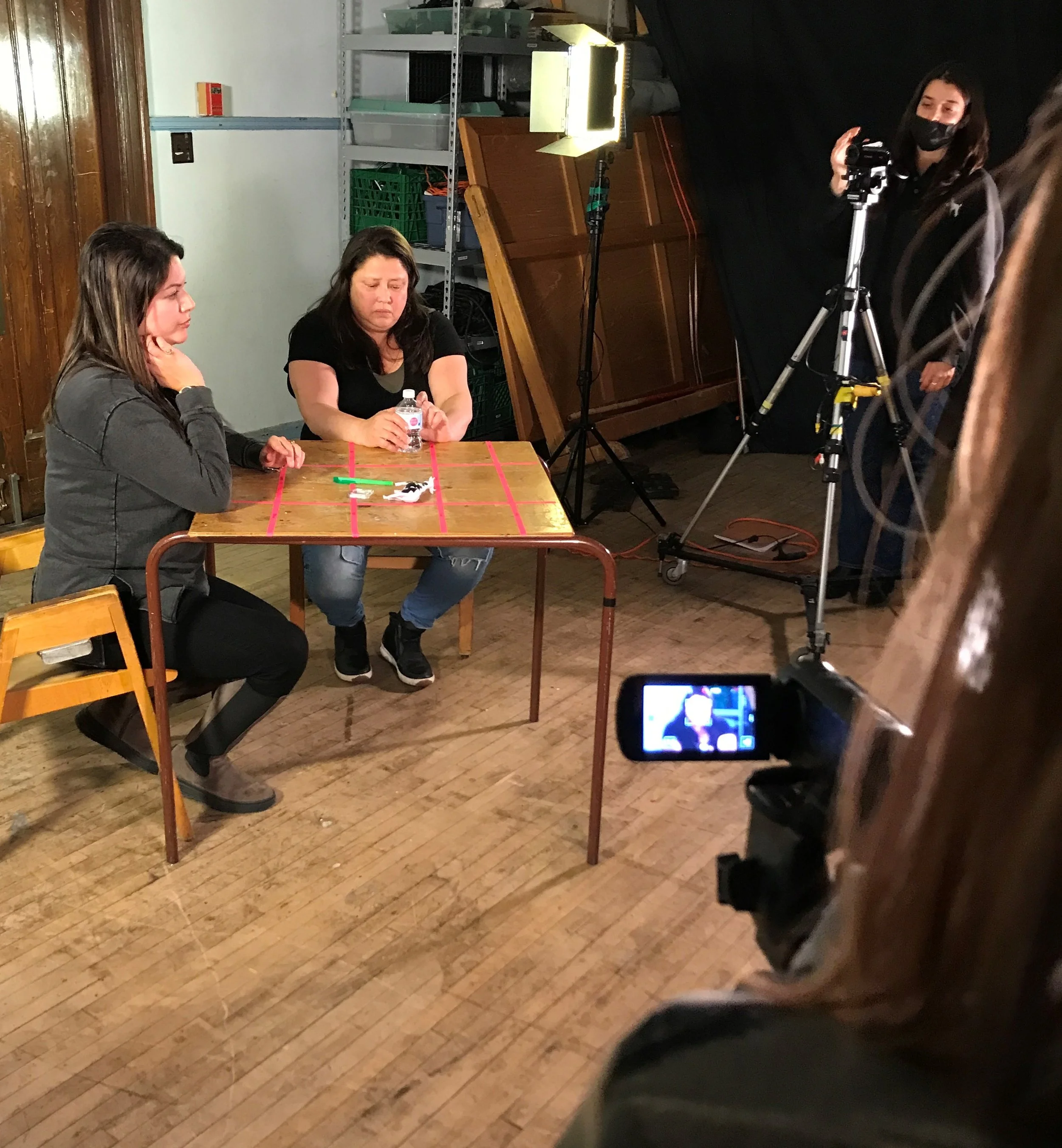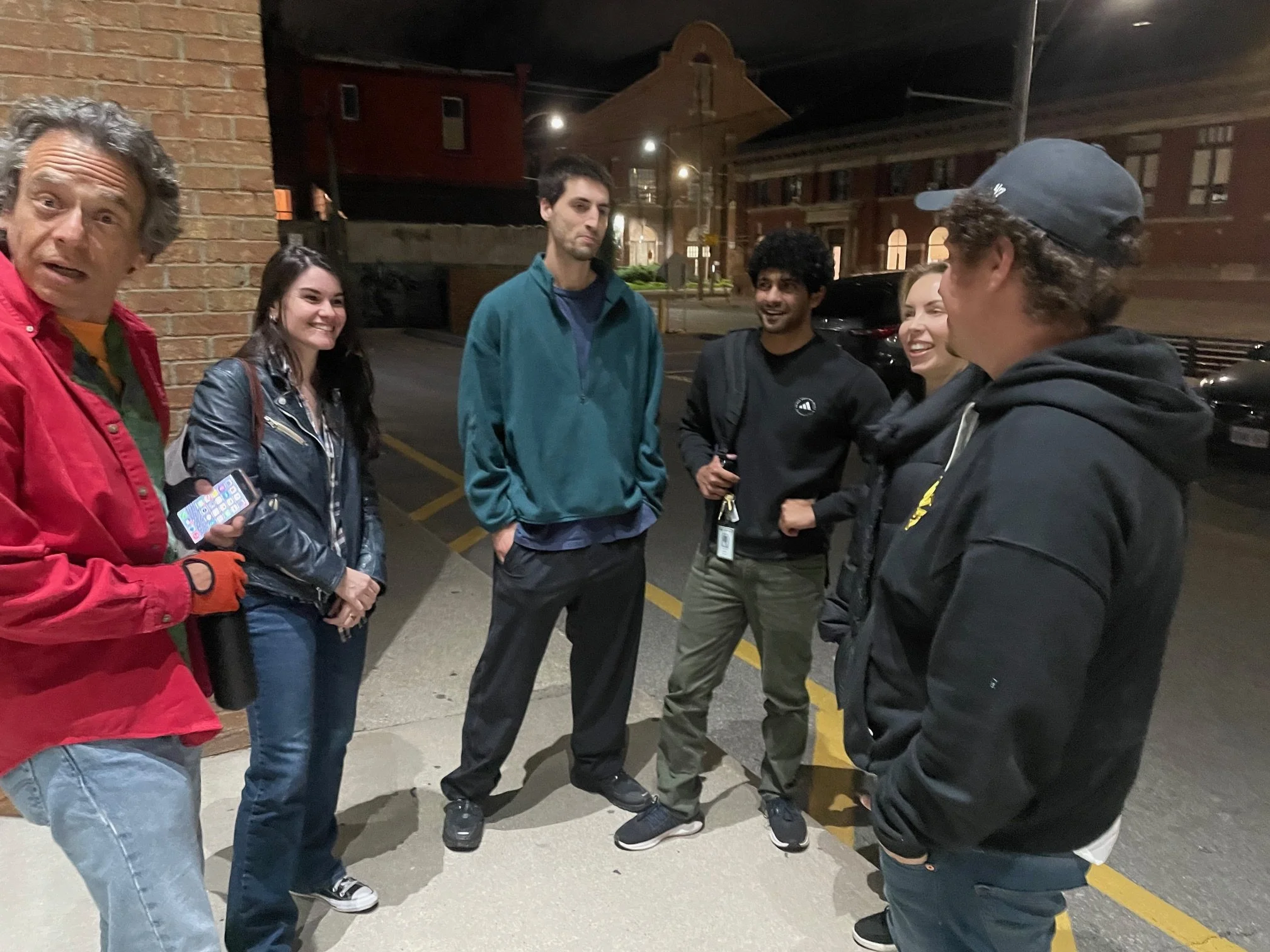The Normalization of Speech
/At an executive meeting of the Actors Discussion group the discussion elaborated on the usefulness and particular quality of the group.
Many points were raised including one phrase that stood out - the normalization of speech.
That phrase was aptly coined while reviewing and expanding on parts of the guidelines of the discussion group that include,
It’s a good opportunity to share stories, highlight common concerns and to say what we’d like to see – the kinds of things that are within our human right to say are ours.
Get-togethers for the main purpose of being able to speak our minds freely without fear of recrimination is a great achievement at a time doing so is cause to be pounded upon and defamed.
The idea of normalization of speech is interesting in many ways. The opposite of speech being normal would be that it’s abnormal.
The definition of abnormal is: ‘Deviating from what is normal or usual, typically in a way that is undesirable or worrying.’
It is certainly worrying when speech is not normal in society. Why isn’t it? What are the conditions giving rise to a lack of freedom of speech, fear of voicing one’s views, exercising freedom of conscience, saying what one thinks.
Humans needed words to be able to survive and live together socially and have been speaking to each other for a long time. Experts vary between 50,000 and 300,000 years. Man had the anatomical ingredients for speech and the diaphragm, larynx, throat, tongue all developed as needed.
Communicating one’s thoughts to another human person is age old, yet now we’re trying to ‘normalize’ it.
Identity politics, political correctness, Covid have all added particular layers of fear of speaking up. Facts show that to be accused today is to be convicted. One can’t describe the Palestinian situation without being accused of anti-Semitism. NDP candidates in elections are forced to step down just by having their social media reported whether or not the candidate did post or any reasons given what the post meant.
The overall world situation including climate change and the mass of military and nuclear forces contending also creates a worrisome situation.
In this framework to have a group of colleagues being able to give voice to their experiences, raise common concerns and common aspirations without fear of recrimination is no small thing.
Currently in Canada there is a proliferation of low budget movies being produced. In these Hallmark romance, Christmas and horror genre movies the scripts are mostly dialogue with no complicated camera work, exterior shots, action sequences, large crowd scenes etc. leaving the actors to do the heavy lifting. These movies are mostly talking.
They are being made in 15 to 20 days. To compare, The Revenant took 9 months and Titanic took 8 months. The burden falls on the actors and crew to work quickly and long hours. The leading actors working under that time pressure have all they can handle to just remember their lines.
During discussion, one member told of her recent experiences playing the lead in one of these movies. She organized to have better working conditions on three important fronts that were being carried out in an unprofessional and uncreative manner: the time the actors are called to set; how to do the blocking and turnaround times.
With typical long days of 16 to 18 hours the actors and crew are tired and any extra time an actor has in their trailer to rest is important. The actors need that time in peace and quiet to learn their lines. Getting called to set too early is an issue.
Doing blocking of scenes in a professional and creative manner leads to higher quality. With the low budget comes inexperienced crew members and tried and true methods not being adhered to leaving the actors carrying an extra burden to try and make the scene artistic.
The collective agreement states the time between the end of a working day and the beginning of the next shall be a minimum of 11 hours. This turnaround time on these low budget movies is often shortened depriving cast and crew needed time to sleep and learn lines.
The producers of these cheap movies schedule overtime and short turnaround times within their budget so shooting isn’t interrupted. These aren’t unforeseen circumstances. The overtime penalty payment in the agreement is there to prevent the shortening of turnaround time, not to have it as part of normal budgeting to produce movies quickly.
In recounting her experiences, the actor said she made gains on all three fronts and organized the other leading actors to take a stand for more organized blocking, shorter set call times and adhering to the 11-hour turnaround.
She said that her experience in speaking her mind in the Actors Discussion meetings gave her the confidence to speak up on set.
This was one practical example of the worth of normalization of speech that is practiced in the Actors Discussion group.
The comments below were received on completing the first year of the Actors Discussion and show that the results for those who join in are magnificent.
As film and theatre artists, we find that we cannot speak to everyone about what it is we do. We seem to find ourselves on a journey through the arts industry alone. The discussion and sharing that we do here, with fellow artists, with like minded individuals is invaluable to me.
***
It's a definite extension of Its Your Space. Take Your Place.
***
The AD is a place I want to be. It helps protect and expand my thinking and perspective on the industry. A place to see, and be seen as an actor/creative/human.
***
Before beginning a meeting I often experience a feeling of resistance — “maybe I won’t go”, “I’m tired, I could just go to bed”… but then, I sign on and we begin. There is a natural unfolding as the evening’s discussion reveals itself. The newness and deepness of it are surprising but not unexpected. Curiosity, questioning, and understanding take over any resistance I had. Often I am left signing off with a feeling of in-kindness, community, and peace. Truths have been spoken. Experiences shared. Ideas aired. And there is something so settling about that.
***
I am so grateful for the AD and the humans that show up, share, and participate in the discussions.
***
It makes me think of a quote from The Lion Tracker’s guide: ”I don’t know where I’m going, but I know how to get there” — and we always get somewhere deep and important.
***
The Actors Discussion is a safe space for us actors to talk freely and openly about anything at all. I'm grateful to the discussion, and its participants, for opening my eyes to new perspectives. Without fault, I always leave the meetings energized and more prepared to face the challenges of a modern Canadian actor.
***
The Actors Discussion is a grounding space where I feel free to engage with my peers about concerns I have or that we collectively have about our work and the industry that frames our work. I appreciate that these discussions are structured all the while leaving space for a flow of sharing and pondering to occur. This group reasserts that we are stronger together and that great solace and support can be found through listening to one another, and through sharing.
***
Actors Discussion is "...an island of calm in a sea of confusion". (ARTICHOKE, by Joanna Glass) Happy first year anniversary. Look forward to each session.
***
Often I come to the meeting thinking I have nothing to say, but once it gets going I always have lots to say.
***
The times I have been there have been comforting and rewarding, creating a bridge from harbouring inner thoughts and resistance to sharing and feeling a like-minded kinship. I have so enjoyed participating.
The Actors Discussion group will continue to make the normalization of speech its practice turning it into habit.








